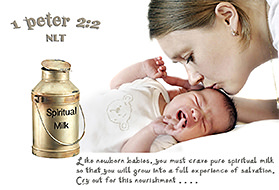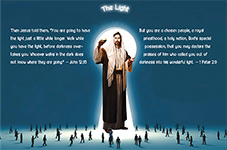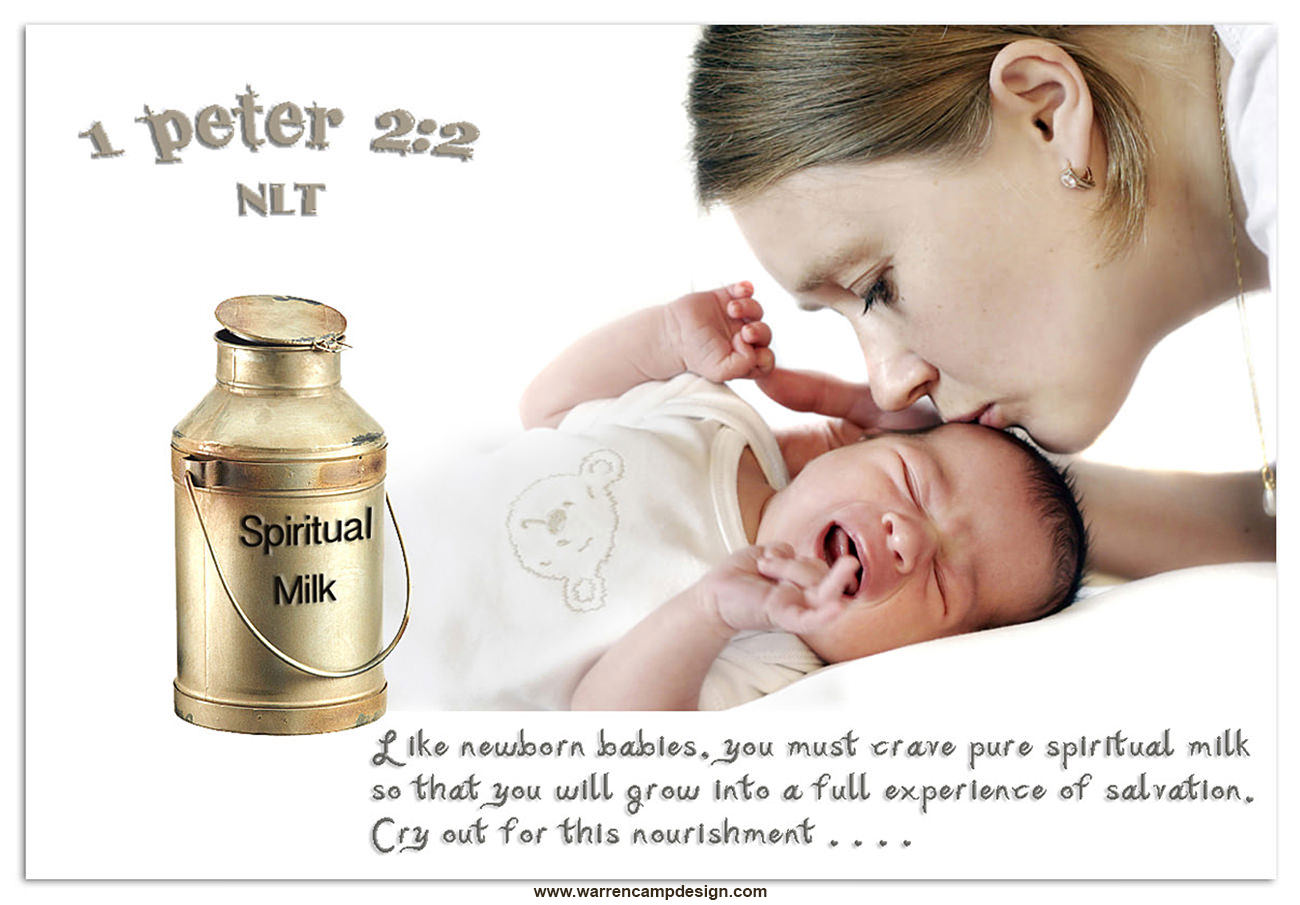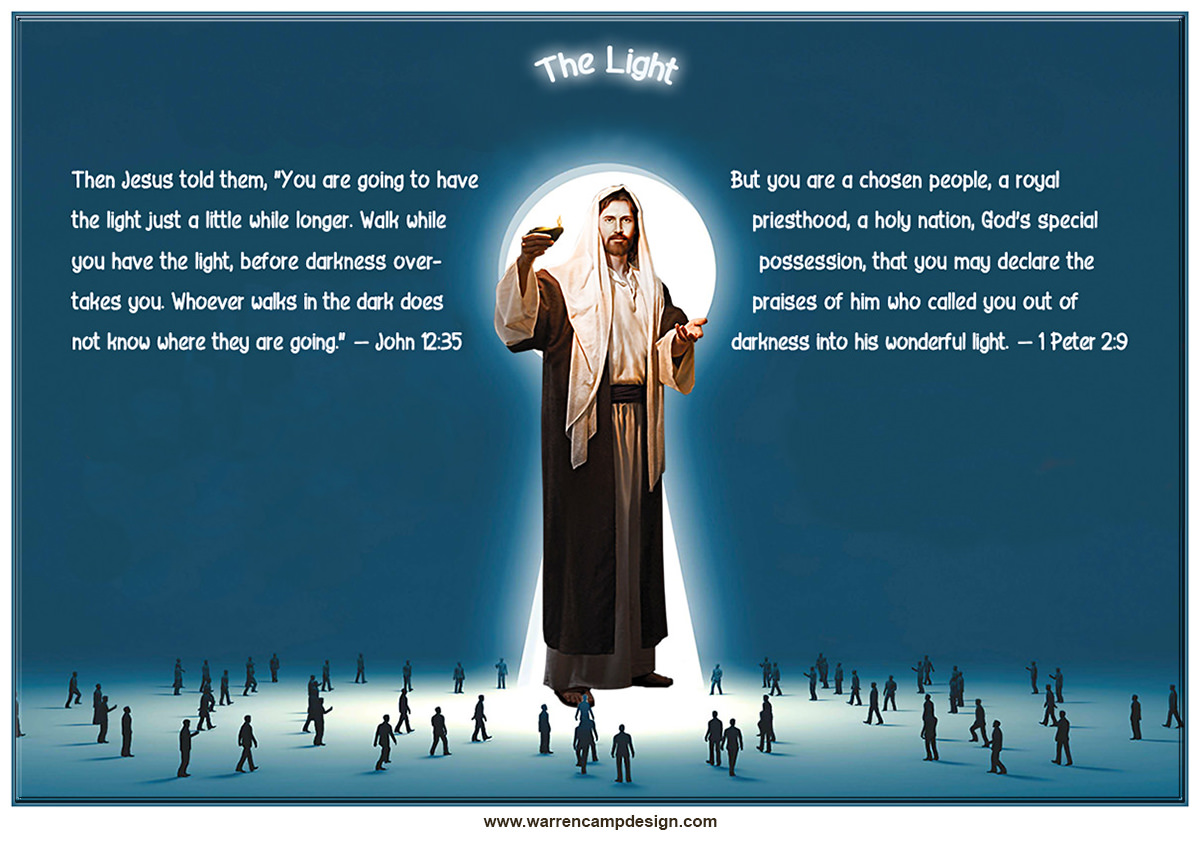
by Warren Camp
1 Peter 2:1–10 . . .
“The Living Stone and a Chosen People”
As chapter 2 begins, Peter continues to admonish his Christian audience to be faithful, despite the problems or suffering they/we face. In chapter 1 (as was shown in Warren’s previous commentary on 1:13–25), he urged Jesus’ followers to love each other deeply, earnestly, exhaustingly, from pure hearts, even when they became abused and corrupted by sinful leaders. They’d been born again through the Word of God, which lasts forever. Peter exhorted this on the basis of the eternal reward and redemption in Christ, which is made available to all of his believers. Now, given that suffering isn’t an exception but the rule, Peter will examine the status of God’s people as a result of our being gifted with salvation. He’ll again encourage us to remain faithful despite the type or extent of hardship.
Before we begin today’s study, it’s worth realizing when Peter and Jesus met for the first time that Jesus did something very unusual: He changed Simon’s name to “Peter.” Peter could hardly have missed the significance of this. Certainly he remembered from the Old Testament that God had changed Abram’s name to Abraham and the name of his wife Sarai to Sarah, which signified that although this couple had been childless for many years, they were to become parents. No doubt Peter also remembered when God changed Jacob’s name to Israel as an indication that he was to be the patriarch of the nation Israel through his sons. Now, Jesus, the Son of God, had changed Simon’s name to Peter, a name which means “rock.”
Crave the Pure Milk of God’s Word (2:1–3)
There are two vitally important action verbs in these opening verses: “rid” and “crave.” Peter’s order in v. 1 to “rid yourselves” of numerous evils is followed by a commitment in v. 2 to “crave” the essentials, thereby enabling our salvation to mature.
2 1Therefore, rid yourselves of all malice and all deceit, hypocrisy, envy, and slander of every kind. 2Like newborn babies, crave pure spiritual milk, so that by it you may grow up in your salvation, 3now that you have tasted that the Lord is good (1 Pet. 2:1–3 NIV).
Peter’s opening “Therefore” serves as a conclusion to what he’d taught in 1:22–25. While still keeping his focus on God’s Word and the love that it enables and stimulates, here in v. 1 he shifts the imagery and emphasis. The “Word of the Lord” was seen in chpt. 1 as an “imperishable seed” by which we were begotten; here in chpt. 2, that seed of God’s Word becomes “pure spiritual milk.” When we take in pure spiritual milk we “grow up in [our] salvation.”
We see in v. 1 five ways in which we fail to actively love to others. We must rid ourselves of all five attitudes and actions that oppose love. In each situation, they present a choice for us: (a) to focus on our merits and advantages or (b) to concentrate on meeting people’s needs and interests. To rid ourselves of these evils means not serving ourselves first or above others. Peter gets specific about what’s involved in his earlier call to holiness (1:13–16). Herein he also sets the stage for vv. 2–10: A person striving for holiness must avoid those five sins.
Once we succeed at ridding ourselves of such unloving attitudes and actions, Peter encourages us to crave something other than our own selfish gratification. And, this “pure spiritual milk” is exactly what we need! Got Questions Ministries describes very well the importance of vv. 1–2: “How do we develop this appetite? We must start drinking. Newborn infants will sometimes reject the very milk they are crying for, at first, until they get a taste of it; then they guzzle hungrily. In Peter’s metaphor here, all Christians are to crave this milk like newborns, even mature believers. No Christian reaches the point on this side of eternity where spiritual growth is complete.”
Peter’s earlier comment about being “born again” (1:23) laid the foundation for his comment in v. 2 about being “newborn babies” who “crave pure spiritual milk” of the Word. Verse 3’s “now that you have tasted that the Lord is good” alludes to Psalm 34:8a, which says, “Taste and see that the Lord is good.” Craving God’s truthful Word develops an appetite that enhances our partaking of it so we can grow in spirit (John 8:32; 17:17, 19; Ephesians 4:15).
We Are Like Living Stones, He Is the Cornerstone (vv. 4–8)
Peter tells us in his two follow-up verses how we should continually come to the Lord — the Word of God. By doing so, we’re to drink the “pure spiritual milk” so we will have “tasted” that he is our good Lord. We’re to come to “the Rock” as a living stone.
4As you come to him, the living Stone — rejected by humans but chosen by God and precious to him — 5you also, like living stones, are being built into a spiritual house to be a holy priesthood, offering spiritual sacrifices acceptable to God through Jesus Christ. 6For in Scripture it says: “See, I lay a stone in Zion, a chosen and precious cornerstone, and the one who trusts in him will never be put to shame” [Isaiah 28:16]. 7Now to you who believe, this stone is precious. But to those who do not believe, “The stone the builders rejected has become the cornerstone” [Psalm 118:22], 8and, “A stone that causes people to stumble and a rock that makes them fall” [Isaiah 8:14].
They stumble because they disobey the message — which is also what they were destined for (1 Pet. 2:4–8).
Herein, Peter describes the blessings that Father God has graciously given to all his children by comparing us to a house that belongs to God (see 1 Timothy 3:15; Ephesians 2:19–22; 1 Corinthians 3:16–17). It’s worth noting that “house” (Greek oikos) can refer either to (1) a physical building or (2) the members of a household or family. The “spiritual house” in v. 5 refers not only to a physical building constructed of stones but is the personification of the Church, which is made of people.
Christ is called “the living Stone” to teach his servants that he’s their protection and security, the foundation on which they’re built. He’s precious in the excellence of his nature, the dignity of his office, and the glory of his services. All true believers have been endowed with heavenly gifts and graces. Therefore, as a holy priesthood (v. 5) we’re to remain sacred to God as we serve the needs of others. But our best spiritual sacrifices are acceptable only through Jesus Christ, the chief Cornerstone. He alone is the one who unites the entire family of believers into one everlasting temple.
What does it mean that Jesus Christ is the Cornerstone? “Since ancient times, builders have used cornerstones in their construction projects. A cornerstone was the principal stone, usually placed at the corner of an edifice, to guide the workers in their course. The cornerstone was usually one of the largest, the most solid, and the most carefully constructed of any in the edifice. The Bible describes Jesus as the cornerstone that His church would be built upon. He is foundational. Once the cornerstone was set, it became the basis for determining every measurement in the remaining construction; everything was aligned to it. As the cornerstone of the building of the church, Jesus is our standard of measure and alignment.”[1]
About v. 6’s “See, I lay a stone in Zion, a chosen and precious cornerstone,” Pastor and Bible teacher, David Guzik, says this: “If we are being built into a spiritual house, there is no doubt who our Chief Cornerstone is. Even though men rejected Jesus, He has become the Chief Cornerstone in the work of building the church. Christ is the cornerstone of Psalm 118, the stumbling stone of Isaiah 8, the foundation stone of Isaiah 28, the supernatural stone of Daniel 2, and the rock that miraculously gave Israel water in the wilderness (1 Corinthians 10:4). And, those who reject the Chief Cornerstone (1 Peter 2:7–8) and refuse to build on Him instead stumble over Him. Instead of being their salvation, Jesus becomes to them a rock of offense.[2]
What Chosen People Are to Do (vv. 9–10)
Peter’s two closing verses of chpt. 2 call believers “a chosen people, a royal priesthood, a holy nation, God’s special possession.” As such, our purpose is to “declare the praises of him who called [us] out of darkness into his wonderful light.” How encouraging it is to know that we’ve been called into God’s wonderful light. Yet, unless we have help, we’re unable to escape the darkness of our circumstances. Thankfully, we believers are empowered by the Holy Spirit who enables us to overcome Satan’s manipulative tactics.
9But you are a chosen people, a royal priesthood, a holy nation, God’s special possession, that you may declare the praises of him who called you out of darkness into his wonderful light. 10Once you were not a people, but now you are the people of God; once you had not received mercy, but now you have received mercy (1 Pet. 2:9–10).
In the Old Testament, God selected the Jews to be his “chosen people.” In Exodus 19:5–6, God says that every Jew who obeyed his laws would become his “treasured possession” and be a “kingdom of priests and a holy nation.” But most of those selected Jews refused to obey God (time after time). Peter now reminds his readers that God has chosen all who trust in Jesus and are obedient to him (1:2) to form that “holy nation.” Jesus is their king; they belong to God because Jesus bought them “with the precious blood of Christ, a lamb without blemish or defect” (1:19). The “darkness” in v.9 describes the time when people are unaware of God and don’t believe in him. It also refers to Satan and his works. People who come into God’s “wonderful light” understand who and what God is because they already know Jesus who said, “I am the light of the world” (see Warren’s Scripture picture of John 8:12).
Furthermore, believers in Christ are welcomed into a family of people who are crowned with mercy and dubbed as “Dear friends” (2:11). What does this mean for how believers interact with each other? Those who are precious to God are encouraged to value and care for people. Like other New testament writers, Peter emphasizes how we are to relate to one another: In 4:8–11, he states that those who belong to the family of God should “love each other deeply” (v. 8), “offer hospitality to one another without grumbling” (v. 9), and use their gifts to serve each other so that God is honored in everything (vv. 10–11). [Stay tuned for our discussion of chpt. 4 in the next few sessions.]
Whenever feelings of low self-worth threaten us with discouragement, we need to rely on the truth of God’s Word rather than on our emotions. Let’s focus on Peter’s four phrases that describe how the Lord sees each of us believers.
1. A chosen people God chose us to be part of his kingdom and family because he selected us. That makes us significant.
2. A royal priesthood We believers are children of God, part of his royal family. Just as Jesus fulfilled the roles of king and priest, so God has also entrusted us with priestly responsibilities of worship and intercession for people.
3. A holy nation Christ’s church body is a group of people who are holy, which means “set apart” for God’s purposes. Our lives are never meaningless because living for the Lord is the greatest purpose one can have!
4. A people for God’s own possession We believers are Father God’s personal possessions. (See Deuteronomy 14:2.) Because he sees us as precious, He sent his Son to die on the cross in our place so we could belong to him.
Each of these four descriptions shows the high value that God places on you. Although Satan may whisper lies of condemnation and criticism, he cannot change who you are. Begin today to demonstrate the truth of Scripture by remembering your real identity and living out your high calling that comes only from the Lord.
- Q. 1 How can people reject God’s chosen, precious cornerstone?
- Q. 2 What does God demand of you that he doesn’t always receive (v. 9)?
- Q. 3 To what extent do you rely on the truth of God’s Word? Do you sometimes wonder if it’s truthful?
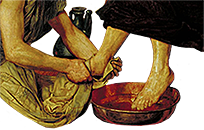
‘Jesus Washes Peter’s Feet’
Click to open “Peter Masterpieces.”
Summary Video: “First Peter”
† Watch this overview video of First Peter created by BibleProject.
Warren’s New “Peter Masterpieces” Photo Album
† View several classic paintings of Saint Peter by art world masters: Rembrandt, Michelangelo, Da Vinci, Rubens, Goya, El Greco, Raphael, Masaccio, Giotto, Correggio, Tintoretto, Caravaggio, Veneziano, Tissot, Duccio, Fra Angelico, Galle, Dürer, Palomino, and many more.
1 Peter 2:1–10
New International Version (NIV) or view it in a different version by clicking here.
— Listen to chapter 2, narrated by Max McLean.

